Processing of Organic Sweet Potato Flour
1. Selection and Cleaning: Organic sweet potatoes are selected for their quality. They are thoroughly washed to remove dirt.
2. Peeling and Slicing: The clean sweet potatoes are peeled and then sliced into thin pieces. The thickness of the slices can affect the drying time and final quality of the flour.
3. Drying: The slices are then dried using various methods such as solar drying, or using a dehydrator during monsoon. Drying at low temperatures is essential to preserve the nutrients. This process can take several hours to a few days depending on the method and environmental conditions.
4. Grinding: Once dried, the sweet potato slices are ground into a fine powder using a high-speed grinder. The fineness of the flour can be adjusted depending on the desired texture.
5. Sifting: The ground powder is sifted to ensure a uniform texture and remove any larger particles. This step ensures the flour is smooth and consistent.
6. Packaging: The final flour is then packaged in airtight containers to protect it from moisture and contamination. Proper packaging helps maintain the flour’s freshness and nutritional value.
Nutrition of Organic Sweet Potato Flour based on the laboratory reports
Sweet potato flour is rich in essential nutrients, including:
– Vitamins: High in vitamin A (as beta-carotene), vitamin C, and B vitamins such as B6.
– Minerals: Contains potassium, calcium, magnesium, and iron.
– Fiber: Good source of dietary fiber, promoting digestive health.
– Antioxidants: Contains various antioxidants that help combat oxidative stress.
– Low Glycemic Index: Provides a slow and steady release of glucose, making it suitable for managing blood sugar levels.
Health Benefits of Organic Sweet Potato Flour
1. Digestive Health: The high fiber content aids in digestion, prevents constipation, and promotes a healthy gut microbiome.
2. Immune Support: Rich in vitamin A and C, it supports the immune system and helps in maintaining healthy skin and vision.
3. Blood Sugar Regulation: Its low glycemic index helps in managing blood sugar levels, making it suitable for people with diabetes.
4. Anti-inflammatory: The antioxidants in sweet potato flour have anti-inflammatory properties that can help reduce inflammation in the body.
5. Heart Health: High in potassium, it helps in maintaining healthy blood pressure levels and supports overall cardiovascular health.
Culinary Uses in Indian Cuisine
Sweet potato flour can be used in various Indian dishes to add nutrition and flavor:
1. Rotis and Parathas: Sweet potato flour can be mixed with wheat flour to make nutritious and tasty rotis and parathas. It adds a slight sweetness and a soft texture.
2. Halwa: It can be used to make sweet potato halwa, a delicious and healthy dessert that is easy to prepare.
3. Pancakes (Chillas): Mix sweet potato flour with besan (gram flour) to make chillas, which are savory pancakes that can be enjoyed as a snack or breakfast.
4. Dosai: Sweet potato flour can be incorporated into dosa batter to make sweet and nutritious dosas.
5. Thickening Agent: Use it as a thickening agent for soups, stews, and gravies to add extra nutrients and a slightly sweet flavor.
6. Baking: Sweet potato flour can be used in baking cakes, muffins, and bread, providing a moist texture and natural sweetness.
Incorporating organic sweet potato flour into Indian cuisine not only enhances the nutritional profile of dishes but also introduces a delightful flavor and texture.
| Weight | 0.250 kg |
|---|


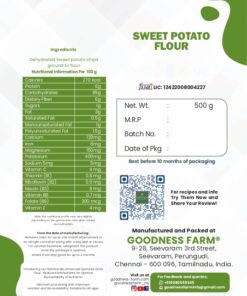
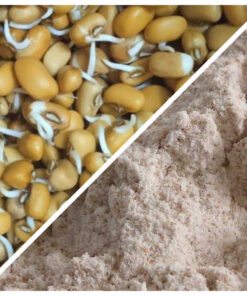
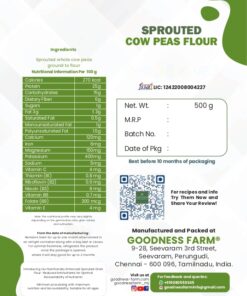
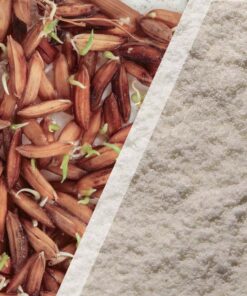
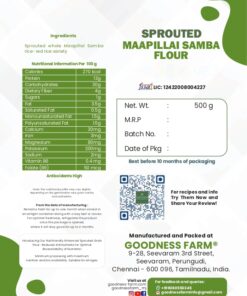
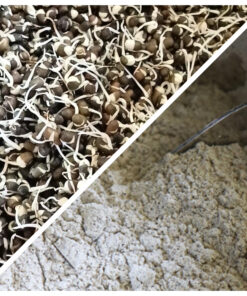
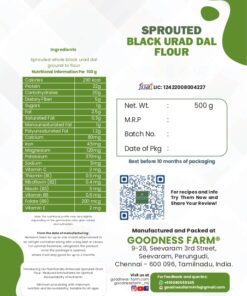


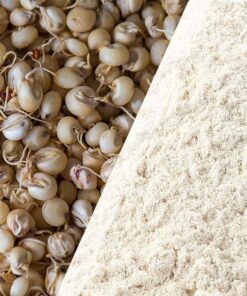
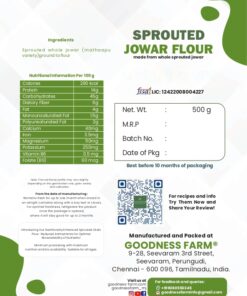
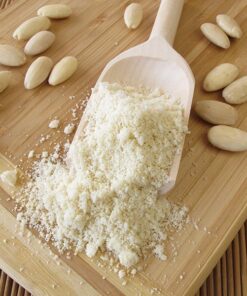
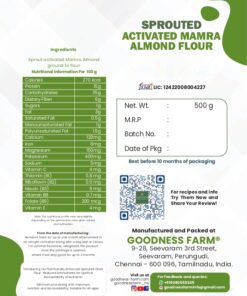
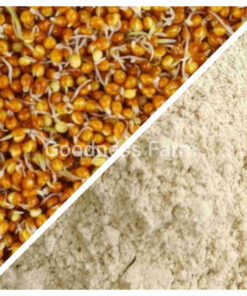
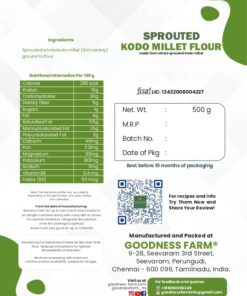

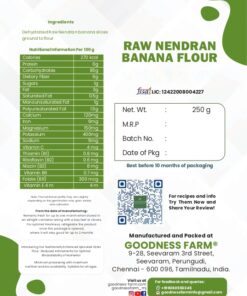

Reviews
There are no reviews yet.